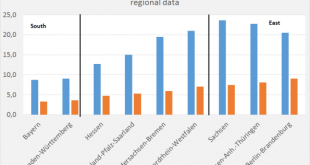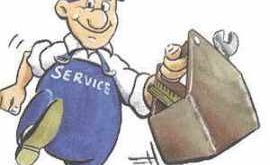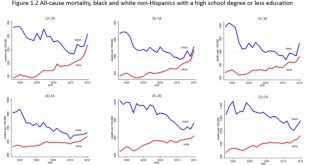from Lars Syll Again and again, Oxford professor Simon Wren-Lewis rides out to defend orthodox macroeconomic theory against attacks from heterodox critics. A couple of years ago, it was rational expectations, microfoundations, and representative agent modeling he wanted to save. And now he is back with new flimflamming against heterodox attacks and pluralist demands from economics students all over the world: Attacks [against mainstream economics] are far from progressive. [D]evoting a...
Read More »America’s hidden pains
from William Neil We begin with some gross numbers from Das’ Age of Stagnation: the loss of wealth from the Great Recession of 2008-2009. Citing the work of three economists at the Federal Reserve Bank of Dallas (Tyler Atkinson, David Luttrell and Harvey Rosenblum), the figures they put on the loss to the U.S. economy come to 6-14 trillion dollars, “equivalent to U.S. $50,000 to U.S. $120,000 for every American household, or 40-90% of one year’s economic output”. We’ve seen figures of...
Read More »Unemployed foreigners, Germany (Ausländerarbeitslosenquote)
from: Merijn Knibbe The graph shows the ‘Ausländerarbeitslosenquote’ (unemployed foreigners ratio) which is calculated by the ‘Bundesagentur fur Arbeit’ (a kind of German ‘Bureau of Labor Statistics’). Unemployment of Germans in East Germany is, after about a quarter of a century, finally below 10% (but still high). But unemployment among ‘foreigners’ is way higher (foreigners are not necessarily immigrants: refugees and people from the Not Very United Kingdom count but so does the...
Read More »Trumponomics: causes and consequences – Part II – RWER issue no. 79
download whole issue Economic policy in the Trump Era 2Dean Baker download pdf Major miscalculations: globalization, economic pain, social dislocation and the rise of Trump 13William Neil download pdf Trumponomics and the developing world 29Jayati Ghosh download pdf Nature abhors a vacuum: sex, emotion, loyalty and the rise of illiberal economics 35Julie A. Nelson download pdf Is Trump wrong on trade? A partial defense...
Read More »Will Trump’s victory break up the Democratic Party?
from Michael Hudson At the time this volume is going to press, there is no way of knowing how successful these international reversals will be. What is more clear is what Trump’s political impact will have at home. His victory – or more accurately, Hillary’s resounding loss and the way she lost – has encouraged enormous pressure for a realignment of both parties. Regardless of what President Trump may achieve vis-à-vis Europe, his actions as celebrity chaos agent may break up U.S....
Read More »Click to print (Opens in new window) Textbooks problem — teaching the wrong things all too well
from Lars Syll It is well known that even experienced scientists routinely misinterpret p-values in all sorts of ways, including confusion of statistical and practical significance, treating non-rejection as acceptance of the null hypothesis, and interpreting the p-value as some sort of replication probability or as the posterior probability that the null hypothesis is true … It is shocking that these errors seem so hard-wired into statisticians’ thinking, and this suggests that our...
Read More »Brexit and all that
from: Merijn Knibbe Brexit should not have happened. But, understandably, it did. Brussels bears a large part of the blame: they could and should have known. The title of this blog is an allusion to the 1992 Wayne Godley article ‘Maastricht and all that’ in which he predicted the present day troubles of the Eurozone. People (in Brussels) should have listened. People (in Brussels) should still listen. If a country does not have its own money it is not really sovereign – unless it has...
Read More »Trade denialism continues: Trade really did kill manufacturing jobs
from Dean Baker There have been a flood of opinion pieces and news stories in recent weeks wrongly telling people that it was not trade that led to the loss of manufacturing jobs in recent years, but rather automation. This means that all of those people who are worried about trade deficits costing jobs are simply being silly. The promulgators of the automation story want everyone to stop talking about trade and instead focus on education, technology or whatever other item they can throw...
Read More »America’s killing fields
from David Ruccio We don’t need Louisiana Detective Rodie Sanchez coming out of retirement to solve the crime against the members of the working-class currently being committed in the United States. We already know many of the details of the crime. We also know the identities of both the victims and the serial killer. The only real mystery is, what’s the country going to do about it? The investigation itself is being painstakingly carried out by Anne Case and Agnus Deaton (pdf). They...
Read More »As the rich received a bigger piece of the pie, everyone else got relatively less.
from Steven Pressman According to Thomas Piketty (2014), between 1980 and 2010 the share of total US income going to the top 10% of earners rose from around 30-35%, where it stood for several decades, to nearly 50%. These are very conservative estimates. Piketty’s figures come from the distribution of adjusted gross income (AGI), reported by the US Internal Revenue Service. AGI subtracts from income things like investment losses, retirement account contributions and their returns (see...
Read More » Real-World Economics Review
Real-World Economics Review






